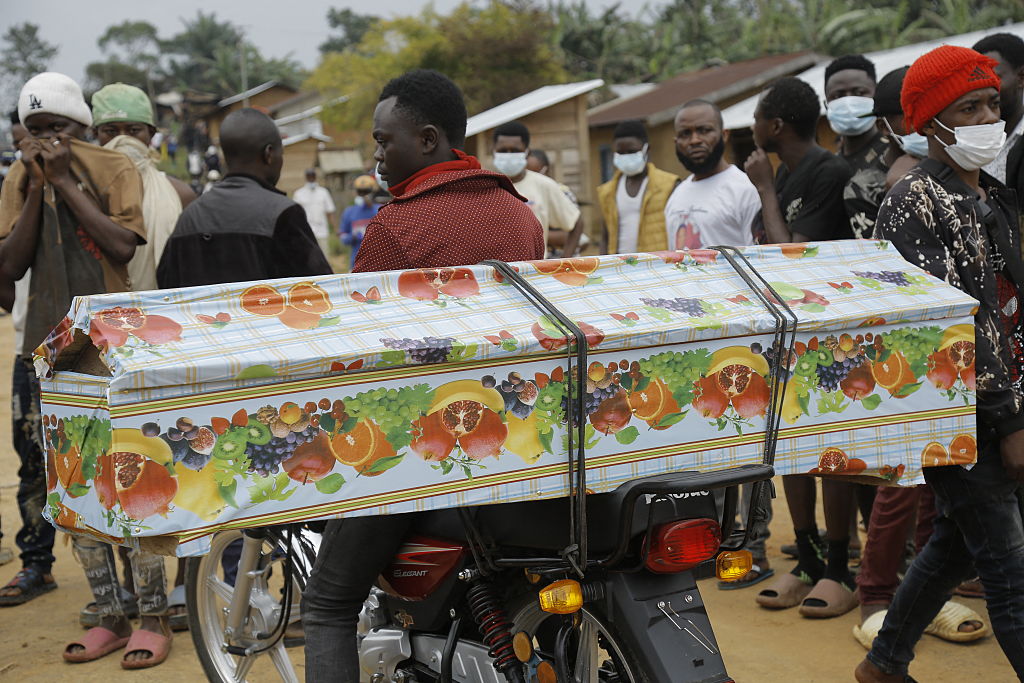Allied Democratic Forces terrorists are capitalizing on chaos in the eastern Democratic Republic of the Congo as security forces focus on the deadly, northward-advancing M23 rebel group.
The Allied Democratic Forces has exploited battles between the Armed Forces of the Democratic Republic of the Congo (FARDC) and M23 to expand its own operations, which include attacks on civilians and security services. This year, the M23 advanced north to the town of Lubero in the North Kivu province, where both groups had been active but in different areas.
“What followed is illustrative of the risk of escalating insecurity through overlapping violence,” wrote Ladd Serwat, an analyst with the Armed Conflict Location & Event Data Project.
In early January 2025, the M23 and the Rwandan Defense Force battled together against FARDC in Kaseghe, a town in Lubero territory. Days later, the Allied Democratic Forces took advantage of the chaos and killed 11 civilians in Kaseghe, marking a bloody start to a deadly year. As the M23 looked to expand northward, it sought a nonaggression pact with the Allied Democratic Forces, which is aligned with the Islamic State group (IS), but the latter declined, according to the United Nations Security Council.
“While the M23 and [Allied Democratic Forces] have yet to clash with one another, their simultaneous operations in geographically proximate areas have strained the Congolese military forces’ capacity to counter both groups simultaneously,” Serwat wrote. “As the FARDC tried to contain the M23 advance in the first quarter of 2025, its attention was diverted from the [Allied Democratic Forces], allowing the Islamist group to carry out a surge in civilian targeting.”
According to the Institute for Security Studies, the Allied Democratic Forces terrorists operate in smaller, agile cells, which enables them to infiltrate urban and nearby developing areas as taxi drivers and merchants. This shows that the Forces’ expansion is strategic, not merely ideological or responsive to military pressure.
The Forces employ a “hybrid insurgent-criminal model,” often using guerrilla hit-and-run tactics, Institute researcher Nirvaly Mooloo wrote. The group also depends on the illicit trade of gold, cocoa and timber, often to Uganda, where it originated in 1996; the Ugandan Army drove it into the eastern DRC in 2002.
The United Nations Office for the Coordination of Humanitarian Affairs has reported that the group is complicit in extrajudicial killings, kidnappings for ransom, extortion and forced taxation of local communities. It recruits fighters skilled in bomb-making and military training through coercion, religious indoctrination and deception. These fighters are recruited from within the DRC, as well as Burundi, Kenya, Somalia and Tanzania. While it is affiliated with the IS, local sources told the Institute that some of the group’s actions contradict IS policy.
In March, Ugandan military intelligence reported that the Allied Democratic Forces forged new alliances with a coalition of ethnic Lendu militants known as the Cooperative for Development of the Congo.
“The [Allied Democratic Forces] are no longer alone,” a traditional chief in the Kasenye area of Lubero told the Data Project. “Other armed groups with similar methods are operating in the shadows.”
The Allied Democratic Forces notoriously targets churches. In July, it killed at least 43 worshippers, including 19 women and nine children, during a night Mass at a church in the town of Komanda in Ituri. On September 9, the group killed more than 70 people and kidnapped 100 during a wake in Lubero. It also torched at least 16 homes. Days later, the group killed dozens more at a Catholic church in the North Kivu village of Ntoyo.
According to The Lion, a digital news service, these attacks brought to 600 the number of people killed by the Allied Democratic Forces this year. Locals fumed after the attack in Komanda.
“We’re truly in shock. Children and women have been killed,” one local woman told Agence France-Presse. “What are the security services doing in Komanda? They’re not doing their job. They’re not doing anything at all.”

